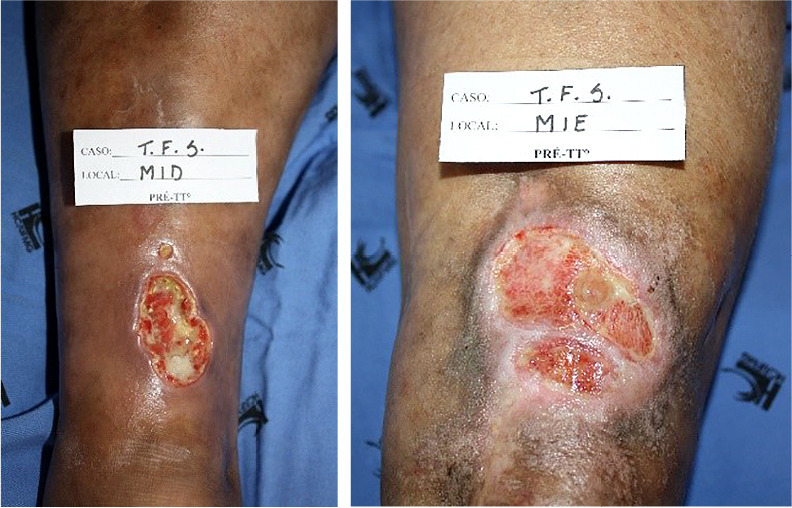-
ORIGINAL ARTICLE
Meanings attributed to changes experienced by individuals after COVID-19 hospitalization
Revista Brasileira de Enfermagem. 2024;77(Suppl 1):e20230122
08-30-2024
Abstract
ORIGINAL ARTICLEMeanings attributed to changes experienced by individuals after COVID-19 hospitalization
Revista Brasileira de Enfermagem. 2024;77(Suppl 1):e20230122
08-30-2024DOI 10.1590/0034-7167-2023-0122
Views0See moreABSTRACT
Objectives:
to understand the meanings attributed to the experiences of individuals after hospitalization for COVID-19.
Methods:
qualitative study, with a theoretical framework based on Symbolic Interactionism and a methodological approach grounded in Grounded Theory. Nineteen participants who had moderate and severe forms of COVID-19 after hospitalization were interviewed. Data collection took place between April and November 2021 through online interviews, and the data were analyzed using initial and focused coding in the MAXQDA software.
Results:
the data illustrate new meanings attributed to different aspects of life after hospitalization, including relationships with others, the environment, physical and mental health, finances, identity, and interactions with a new social reality.
Conclusions:
the meanings are intrinsically linked to the value of interpersonal relationships, the perception of their impact, and the consequences after hospitalization. This allows professionals to understand the importance of this information to improve care and prepare for future epidemics.

-
ORIGINAL ARTICLE
From diagnosis to complications: experiences of those who live with systemic lupus erythematosus
Revista Brasileira de Enfermagem. 2022;75(4):e20200847
04-15-2022
Abstract
ORIGINAL ARTICLEFrom diagnosis to complications: experiences of those who live with systemic lupus erythematosus
Revista Brasileira de Enfermagem. 2022;75(4):e20200847
04-15-2022DOI 10.1590/0034-7167-2020-0847
Views0See moreABSTRACT
Objective:
To understand how people with lupus experience the diagnosis and how they deal with complications arising from the disease.
Method:
Qualitative study, whose data were collected between February and July 2019, through semi-structured interviews with 26 individuals and submitted to content analysis.
Results:
Three categories emerged that show illness from lupus as a difficult experience, permeated by sadness, fear and suffering, which, in addition to being linked to society’s lack of knowledge about the disease, negatively impacts the lives of those who experience it. Furthermore, they show that the time of living with the disease favors the development of self-care strategies and greater therapeutic adherence and, consequently, longer periods of disease remission.
Considerations:
More disclosure about the disease and its implications in the daily lives of those affected is essential, culminating in greater understanding of family, friends and colleagues and improvements in health care and quality of life for these people.
-
EXPERIENCE REPORT
Patients who experience systemic lupus erythematosus and leg ulcer: phenomenological approach
Revista Brasileira de Enfermagem. 2022;75(2):e20200081
10-25-2022
Abstract
EXPERIENCE REPORTPatients who experience systemic lupus erythematosus and leg ulcer: phenomenological approach
Revista Brasileira de Enfermagem. 2022;75(2):e20200081
10-25-2022DOI 10.1590/0034-7167-2020-0081
Views0See moreABSTRACT
Objective:
To understand the experience of a woman with systemic lupus erythematosus and leg ulcers with cutaneous calcinosis.
Methods:
An experience report based on the social phenomenology of Alfred Schutz, conducted with a young woman undergoing treatment in an outpatient service.
Results:
The disease manifested itself in adolescence and brought emotional instability associated with body image concern and social isolation. The discontinuation of the studies triggered financial limitations with implications for treatment. The presence of ulcers aggravated by skin calcification makes the process of getting sick tiring and painful. Interpersonal relationships are resources for coping with situations experienced.
Final considerations:
Patients with lupus may have social, affective, and family life, even in the face of the limitations imposed by the disease. However, the emergence of leg ulcer with calcinosis changes this situation.

-
ORIGINAL ARTICLE
Rebuilding subjectivity from the experience of cancer and its treatment
Revista Brasileira de Enfermagem. 2019;72(1):125-133
01-01-2019
Abstract
ORIGINAL ARTICLERebuilding subjectivity from the experience of cancer and its treatment
Revista Brasileira de Enfermagem. 2019;72(1):125-133
01-01-2019DOI 10.1590/0034-7167-2018-0332
Views0See moreABSTRACT
Objective:
To analyze the social representations of chemotherapy and the experiences built by people with cancer.
Method:
Descriptive study with a qualitative approach. Data collection occurred between August and December 2016, through interviews with 29 cancer patients undergoing chemotherapy at an institution in the northern part of Paraná State, and the Thematic-Categorical Content Analysis.
Results:
Four categories have emerged denoting attitudes, feelings and experiences associated with chemotherapy and the need for reconstruction of daily life, permeated by the distancing of social life and work. At the same time, we note the close ties with friends and family, as well as adaptive strategies, new meanings of experiences lived and life priority setting.
Final considerations:
Cancer represents an interruption of plans and dreams, modifying everyday tasks and generating new experiences. This process facilitates giving a new meaning to the past and the reconstruction of subjectivity.




